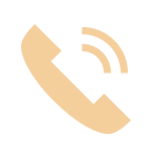How to Become an Effective Learner
Posted on 26th April 2023
How to Become an Effective Learner
One of the most important things to remember when studying is that it's not all about memorizing facts. Instead, it's about understanding concepts and being able to apply them to new situations. When you understand something, it's much easier to remember it later on.
Learning is a process that involves a number of different skills and strategies. Some students are naturally good at certain aspects of learning, but struggle with others. For example, some people have great memory and recall, but find it hard to focus on their work for long periods of time.
Here are some tips for improving your studying skills:
1. Set goals before you begin studying
2. Write a study timetable and stick to it
3. Take notes while reading
4. Use mnemonics to remember key facts
5. Make sure you understand the material before moving on
6. Don't cram - study regularly over a long period of time
Here are some tips for studying more effectively:
Set aside specific times to study. If you want to study more effectively, set aside a specific time and place where you will do nothing but study. This gives your mind the chance to concentrate fully on learning new material without being interrupted by other activities or thoughts.
Have a routine. A routine helps you focus on what's important and makes it easier to get started when it's time to study. Create a schedule that includes taking breaks and rewards for completing certain tasks. This will keep you motivated and help prevent burnout.
Study with others. Studying with friends can be fun, but it also helps you learn better because you can bounce ideas off of each other, share insights, compare notes, solve problems together and make sure everyone understands the material equally well (or equally badly).
Take good notes in class so that you have something to refer back to later when studying at home or preparing for an exam or test.
You're probably aware of some of the most common study strategies: flashcards, mnemonics, reading out loud and re-reading your notes. But did you know that there are a number of other techniques that can help you improve your studying and learning?
Here are some tips for making the most of your time in the library:
1. Take breaks. Breaks are important because they give your brain time to process what you’re learning and build connections between different ideas. Breaks can be as simple as taking a walk around campus or going for a quick jog around the block. If you’re feeling particularly stressed out, take 10 deep breaths in through your nose and exhale slowly through pursed lips.
2. Don’t cram! Cramming may seem like a good idea at first because it gives you more time to study before an exam (the less time spent on studying = more time for fun!), but it actually reduces long term retention because it doesn't allow enough time for memories to form properly in the brain. Instead, try spacing out your studying over several sessions so that each session is spaced out by at least 24 hours from the last one (or longer if possible).
Share this post:








